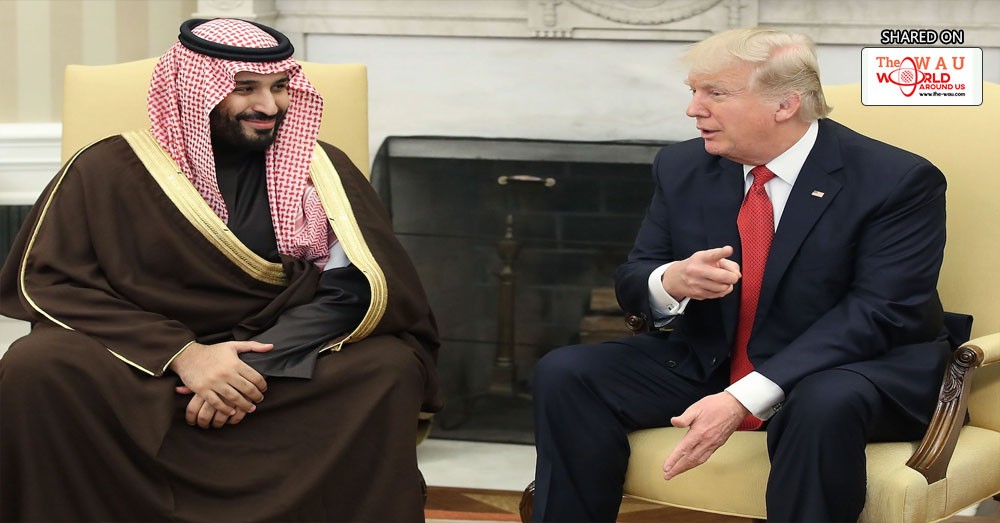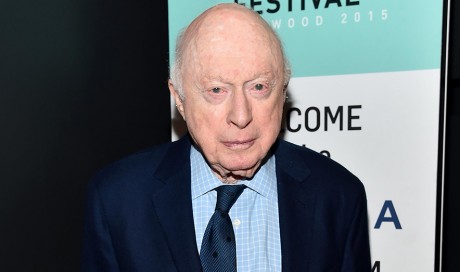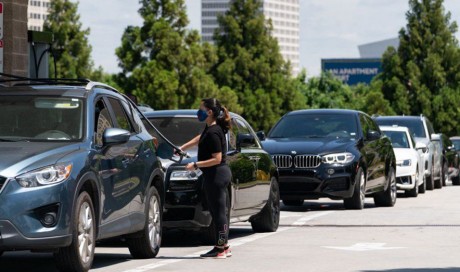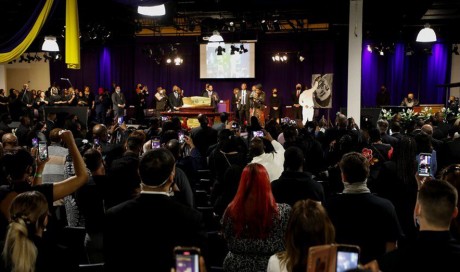Donald J. Trump is not abiding by a central tenet of international diplomacy -- choose your friends wisely, particularly in the Middle East.
For decades, American leaders have steered carefully between the Scylla and Charybdis of ancestral enemies -- Saudi Arabia and Iran -- in hopes of maintaining some vestige of peace, or at least the absence of outright war, in the region.
And yet now, as the two nations find themselves locked in a direct battle for total dominance in the Middle East, the US is choosing to favor Saudi Arabia. This choice makes America a clearer target of Iran and presents an even more imminent danger since it's unlikely any compromise might be negotiated that could reduce the threat of an armed conflict.
In Yemen, Saudi and Iranian proxies have chosen sides in a war that places the population of 28 million at risk of famine or death by military attacks.
And, most recently, the Saudis have sought to extend their reach into Lebanon, one of the last truly stable democracies in the entire region. This tiny nation of 6 million, strategically balanced between Israel and Syria, suddenly finds itself drawn deeply into an Iranian-Saudi conflict it has tried in vain to avoid. Its beloved Prime Minister, Saad Hariri, when he landed in Riyadh, was forced to read on live television a speech announcing his resignation.
After escaping the Saudis' clutches, Hariri returned to Beirut and triumphantly rescinded his resignation. And the Middle East has been plunged even deeper into some form of instability since then.
In Qatar, the effort of the one Arab nation that has sought to maintain an even tenuous balance between the two nations, is seen by the rulers of Saudi Arabia as a full-throated embrace of Iran and all it represents. The result has been a monthslong blockade and outright ostracism in an effort to bludgeon Qatar into submission to the Saudis' will.
Iran, lining up ever more resolutely with forces calculated to cement its own dominance from Baghdad to Beirut and beyond, is becoming a force to be reckoned with across the region and far beyond. Indeed, the Iranian navy's commander, Rear Adm. Hossein Khanzadi told the nation's Tasnim News Agency that a fleet of Iranian warships "in the near future will visit one of the friendly states in South America and the Gulf of Mexico," possibly Venezuela, whose relations with the United States have deteriorated as they have risen with Iran. Quite a signal to the Trump administration.
At the same time, however, the Saudis are still acting from what they believe is an unprecedented position of strength. And that position is only reinforced by Trump.
From his first stop abroad as President last May, Trump seems to have thrown all caution to the wind by aligning with Saudi Arabia in this thoroughly toxic environment. Then, the President's son-in-law, Jared Kushner, charged with bringing peace to the Middle East, flew suddenly and unannounced to Riyadh last month to dine and converse late into the night with the powerful 32-year-old Crown Prince Mohammed bin Salman.
Days later, MBS, as he is known, shockingly ordered the arrest of 11 princes and scores of business leaders for "corruption" -- a power play that seems to have gone unchallenged, either in Riyadh or Washington. Could MBS have gotten a tacit buy-in from Trump's 36-year-old princeling, particularly since the two fathers -- Trump and King Salman -- talked by phone just hours after the mass arrests?
Regardless, the Trump administration is making a dangerous move. The kingdom will soon be ruled by a young, untested and clearly impulsive heir apparent. His interests seem to oscillate between himself, his immediate family and a broader agenda that could prove quite dangerous to such a volatile region.
Already, Iran has become the dominant player in four key Arab capitals -- Damascus, Baghdad, Beirut and Sanaa. It is becoming a critical player in Egypt, where its proxies have carried out several key terrorist attacks that the Egyptian strongman and Trump friend, Gen. Abdel Fattah al-Sisi, is apparently powerless to prevent. Equally, Turkey is beginning to look to Tehran for some degree of comfort in its battle against its Kurdish foes, at the same time Trump has sought to schmooze its autocratic leader, Recep Tayyip Erdogan.
Meanwhile, Vladimir Putin, through his alliance with Syria's Bashar al-Assad, has become the Tehran-whisperer through whose antechambers all western nations apparently must pass if they want to do business in suppressing ISIS in Syria and its immediate neighbors. When negotiators arrived in Geneva on Tuesday for the latest round of UN-sponsored talks to broker a peace in Syria, Putin's specter was inevitably hanging over every discussion. After all, there will be no peace in Syria without a Russian buy-in as Syria's ruler holds office largely thanks to Russian military might.
Clearly, Saudi Arabia has seized on its own agenda. And without some strong pushback from a White House that is ill-inclined to question the royals' priorities, Saudi priorities will inevitably become America's as well. The Saudi agenda seems to be suppression of radical Islam within Saudi Arabia's own borders, and increasingly abroad. Such activities only seem to be accelerating under the nation's young Crown Prince and his father, who is increasingly turning a host of potentially dangerous initiatives over to his son. But it is far from clear if the Saudis have the kind of muscle or appetite to succeed.
Despite these risks, the US may be well on our way to backing the wrong horse in the world's most volatile region. Trump has agreed to sell the Saudis $350 billion in American arms over the next decade. Against whom will these weapons be trained and how certain can we be that they will be deployed judiciously and not in the interests of settling some millennium-old score? The US may soon find out the answer to this frightening reality.
Share This Post












